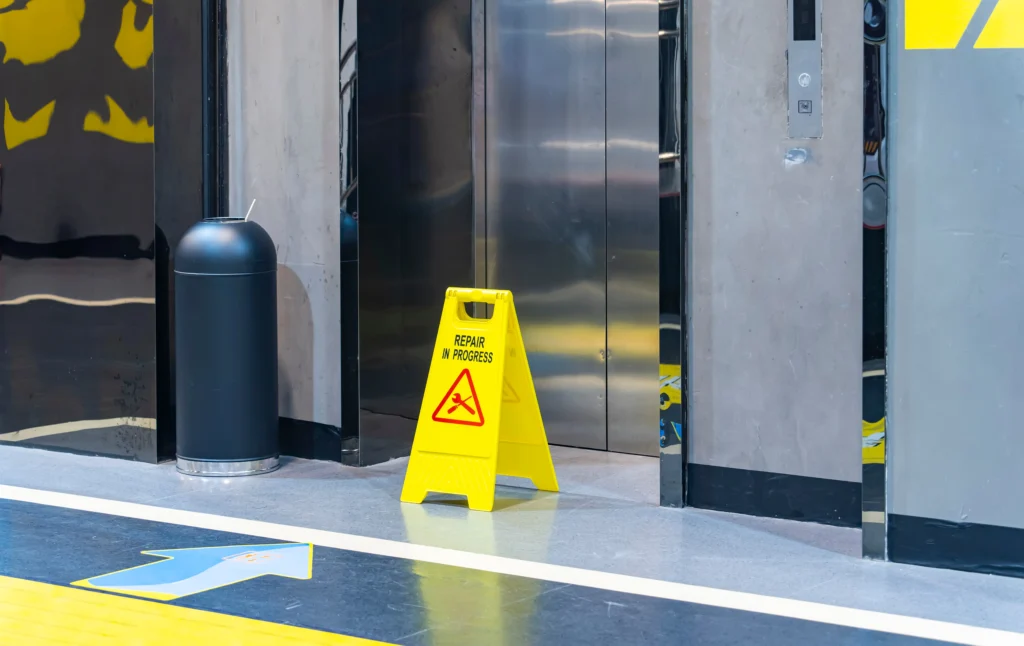Reno Traumatic Brain Injury Lawyers
A traumatic brain injury (TBI) can drastically alter the course of a person’s life. From impaired cognitive function to chronic pain and emotional distress, the effects are often long-lasting and difficult to predict. Victims may find themselves unable to return to work, maintain relationships, or handle basic daily tasks without assistance.
At Ed Bernstein Injury Lawyers, we help individuals and families navigate the aftermath of serious brain injuries caused by negligence. If you or a loved one suffered a TBI due to a car accident, slip and fall, workplace incident, or other traumatic event in Reno, our experienced legal team is here to fight for your rights. We understand the complexity of these cases and will work tirelessly to pursue the compensation you deserve for medical bills, lost income, and long-term care.
Speak with a Reno brain injury attorney today to understand your rights and take the first step toward financial recovery.
Contact a Reno brain injury attorney today for a free consultation.
What Is a Traumatic Brain Injury?
A traumatic brain injury (TBI) is caused by a sudden, external force that impacts the brain’s normal function. These injuries can result from a direct blow to the head, a violent jolt, or penetration of the skull. TBIs are often classified as mild, moderate, or severe depending on the nature and duration of symptoms. While some individuals recover fully from minor TBIs, others may experience lifelong complications that affect cognition, mobility, and emotional regulation.
Types of Traumatic Brain Injuries
There are several forms of traumatic brain injuries, each presenting with distinct causes, symptoms, and long-term effects. The severity and nature of the trauma often determine how the brain is affected, which areas are impacted, and how the victim’s daily life may be altered. Some TBIs may involve localized bruising or bleeding, while others affect brain function on a broader scale. In severe cases, individuals may face long-term disability, require full-time care, or be unable to return to work or school. Understanding the different types of TBIs is critical for both proper medical treatment and pursuing full legal compensation in a personal injury claim.
Concussion
A concussion is the most common and widely recognized form of traumatic brain injury. It typically results from a sudden impact or shaking of the head that causes the brain to move rapidly inside the skull. While often labeled as “mild,” concussions can cause serious and lasting symptoms such as headaches, nausea, blurred vision, memory loss, and sensitivity to light or sound. Repeated concussions, especially without proper recovery time, can increase the risk of long-term cognitive deficits, mood disorders, and conditions like chronic traumatic encephalopathy (CTE).
Contusion
A contusion is essentially a bruise on the brain caused by a direct blow to the head. These injuries involve bleeding and swelling in the brain tissue, which can lead to increased intracranial pressure. In cases of large or multiple contusions, surgical intervention may be necessary to alleviate pressure and remove clotted blood. Contusions often occur in falls, vehicle accidents, or sports injuries, and they can impair motor function, memory, and speech depending on the area of the brain affected.
Diffuse Axonal Injury (DAI)
Diffuse axonal injury is a severe and often catastrophic type of brain trauma. It occurs when the brain is shaken or twisted inside the skull, stretching and tearing nerve fibers (axons) throughout various brain regions. This widespread damage disrupts communication between brain cells and can result in coma or persistent vegetative states. DAIs are frequently caused by high-speed car accidents or violent assaults and can lead to significant cognitive and physical impairments that require lifelong care.
Penetrating Brain Injury
Penetrating brain injuries happen when an object, such as a bullet, shrapnel, or sharp piece of debris, breaks through the skull and enters the brain tissue. These injuries are typically life-threatening and require immediate emergency medical intervention. Survivors of penetrating injuries often face complex neurological challenges, including paralysis, seizures, and permanent cognitive deficits. Because these injuries usually cause localized and severe damage, recovery is highly dependent on the area of the brain affected and the speed of treatment.
Common Symptoms of TBI
The symptoms of a traumatic brain injury can vary widely depending on the type of injury sustained, the area of the brain affected, and the severity of the trauma. While some symptoms appear immediately after the incident, others may take days or even weeks to develop, making early detection and medical evaluation critical. Common symptoms include physical issues like persistent headaches, nausea, dizziness, or visual disturbances, cognitive difficulties such as memory lapses, trouble concentrating, and slowed processing speed, and emotional or behavioral changes, including irritability, depression, anxiety, or sudden mood swings. In more serious cases, victims may experience slurred speech, seizures, loss of consciousness, or changes in personality. Without proper treatment, these symptoms can worsen over time and significantly interfere with a person’s ability to work, maintain relationships, or function independently. Recognizing and addressing these warning signs early is key to preventing further complications and improving long-term outcomes.
- Persistent headaches or migraines
- Dizziness or balance issues
- Blurred vision or ringing in the ears
- Difficulty concentrating or remembering
- Emotional instability or depression
- Sleep disturbances
In more severe cases, individuals may lose consciousness for extended periods, experience seizures, or have significant speech and mobility impairments.
The Importance of Early Diagnosis and Treatment
Timely diagnosis is essential to prevent worsening brain damage. If a TBI is suspected, healthcare providers may perform neurological exams, CT scans, or MRIs to determine the extent of the injury. Early intervention may involve medications to reduce swelling, surgery to relieve pressure, or close monitoring in a neuro-intensive care unit.
For in-depth information, refer to the Mayo Clinic’s guide to TBI symptoms and treatment.
Common Causes of Traumatic Brain Injuries in Reno
Traumatic brain injuries can occur in a wide range of scenarios, many of which involve negligence or unsafe conditions. Reno’s growing population, busy roadways, and active outdoor lifestyle all contribute to the risk of TBIs. Understanding the most common causes can help victims recognize when they may have a valid personal injury claim.
Motor Vehicle Accidents
Car, truck, and motorcycle accidents remain among the leading causes of TBIs in Nevada. The force of a collision often causes occupants to strike their heads against steering wheels, dashboards, or windows, resulting in concussions, contusions, or more severe brain damage. In high-speed crashes or rollovers, the risk of a diffuse axonal injury increases significantly.
According to the National Highway Traffic Safety Administration (NHTSA), motor vehicle accidents account for a large percentage of brain injuries each year, especially among teens and young adults. If another driver’s negligence caused your accident, due to speeding, distracted driving, or intoxication, you may be entitled to compensation for medical care and other losses.
Slip and Fall Accidents
Slip and fall incidents are a particularly common cause of TBIs among older adults but can affect individuals of all ages. These accidents often occur on unsafe properties where conditions such as wet floors, uneven pavement, broken staircases, or poor lighting pose serious hazards.
The Centers for Disease Control and Prevention (CDC) notes that falls are the leading cause of traumatic brain injuries in the U.S. Property owners, business operators, and landlords may be held liable for failing to maintain a safe environment or warn visitors of known dangers.
Bicycle and Pedestrian Accidents
Reno’s bike lanes and pedestrian zones are a welcome feature of the city, but they can also be dangerous when drivers fail to yield or obey traffic signals. Cyclists and pedestrians are especially vulnerable to TBIs since they lack the physical protection of a vehicle. Even with a helmet, a head impact with the ground or a moving vehicle can result in a serious brain injury.
Organizations like Safe Kids Worldwide emphasize the importance of traffic awareness and helmet use, but driver negligence remains a major risk factor.
Workplace and Construction Site Accidents
Jobs that involve physical labor, especially in construction or manufacturing, carry a heightened risk for head injuries. Workers may be struck by falling objects, fall from scaffolding or ladders, or suffer blows from heavy machinery. In some cases, employers or third parties may be liable for failing to provide proper safety equipment or maintain safe working conditions.
The Occupational Safety and Health Administration (OSHA) outlines strict regulations for preventing head trauma in the workplace, but violations still occur far too often.
Symptoms of a Traumatic Brain Injury
The symptoms of a traumatic brain injury can range from subtle to severe, and in many cases, they may not appear immediately after the incident. It’s important to recognize the warning signs early and seek medical care right away, even for what may seem like a minor bump to the head. Delaying treatment can lead to serious complications or a worsening of symptoms over time.
Physical Symptoms
Physical symptoms are often the first and most noticeable indicators of a traumatic brain injury. These early warning signs typically emerge within minutes or hours of the injury but can sometimes take longer to fully develop. Because the brain controls nearly every function in the body, physical symptoms can manifest in various ways depending on which part of the brain is affected. Victims may feel “off” without understanding why, experiencing dizziness, blurry vision, or difficulty maintaining balance. Even mild symptoms like fatigue or headaches should not be ignored, as they could point to underlying damage. Recognizing these physical changes early on is critical not only for preventing further complications but also for documenting the injury in a legal claim. If left untreated, seemingly minor physical symptoms can evolve into long-term impairments that affect a person’s health, livelihood, and independence.
Persistent or Worsening Headaches
Headaches are one of the most common physical symptoms after a traumatic brain injury. While some may resolve quickly, others can intensify over time, signaling deeper issues like intracranial bleeding or increased pressure inside the skull. Persistent headaches, especially those that grow more painful or are resistant to over-the-counter medication, should be evaluated by a medical professional immediately.
Nausea and Vomiting
Following a brain injury, many individuals experience nausea or vomiting, especially in the early stages. These symptoms may be triggered by disorientation, brain swelling, or increased pressure on certain parts of the brain. Vomiting more than once after a head injury can be a red flag for a more serious condition and warrants urgent medical attention.
Fatigue or Drowsiness
Excessive tiredness or sudden drowsiness is a frequent symptom of TBI. The brain may struggle to regulate sleep cycles or maintain normal energy levels due to disrupted neurological pathways. In moderate to severe cases, fatigue may become chronic, interfering with a person’s ability to work, stay alert, or participate in everyday activities.
Loss of Balance or Coordination
Damage to areas of the brain responsible for motor control, such as the cerebellum, can lead to unsteadiness, stumbling, or difficulty coordinating body movements. These symptoms not only indicate potential brain dysfunction but also increase the risk of additional injuries from falls or accidents. Physical therapy may be necessary to regain control and stability.
Blurred Vision, Ringing in the Ears, or Light Sensitivity
TBIs can affect the sensory centers of the brain, leading to visual and auditory disturbances. Blurred or double vision, tinnitus (ringing in the ears), and photophobia (sensitivity to light) are all warning signs of neurological impairment. These symptoms may come and go or persist for weeks, and they often interfere with reading, driving, or using electronic devices.
These symptoms may surface shortly after the injury or gradually intensify over the following hours or days. Any physical signs following a head injury should be taken seriously, especially if they worsen with time.
Cognitive and Behavioral Changes
Many TBI victims experience noticeable changes in how they think, focus, and interact with others. Common cognitive and behavioral symptoms include the following.
- Difficulty concentrating or processing information
- Short-term or long-term memory problems
- Confusion or disorientation
- Mood swings, irritability, or depression
- Anxiety or heightened emotional sensitivity
These changes can interfere with daily routines, employment, relationships, and overall quality of life. Family members often notice these symptoms before the injured person does.
Sensory and Sleep Disruptions
Traumatic brain injuries often go far beyond visible physical or cognitive impairments, they can significantly impact a person’s sensory perception and sleep patterns as well. These disruptions may not be immediately recognized as symptoms of a brain injury, especially in cases where there is no loss of consciousness or dramatic behavioral change.
However, alterations in how a person experiences sound, light, taste, or smell are strong indicators that the brain’s sensory processing centers have been affected. Similarly, changes in sleep habits, whether sleeping too much, struggling with insomnia, or experiencing vivid nightmares, are common among TBI victims and can severely interfere with healing. These symptoms are often invisible to others but can dramatically diminish quality of life, contributing to fatigue, irritability, and emotional instability. Addressing these issues through medical care, therapy, and lifestyle adjustments is a critical part of recovery from any traumatic brain injury.
Sensitivity to Noise or Light
After a traumatic brain injury, it’s common for individuals to develop heightened sensitivity to sound and light. Everyday noises like conversations, television, or traffic can suddenly feel overwhelming or painful. Similarly, exposure to bright lights, whether from screens or sunlight, may trigger headaches, dizziness, or nausea. These sensory disturbances are often tied to changes in how the injured brain processes external stimuli. This sensitivity can interfere with work, social interaction, and daily routines, making quiet, low-light environments a necessary part of recovery.
Altered Sense of Taste or Smell
Damage to certain regions of the brain, particularly the frontal and temporal lobes, can result in changes or loss of taste and smell. Some individuals report food tasting metallic, bland, or different than usual, while others lose their sense of smell entirely (anosmia). These changes not only impact quality of life but may also signal deeper neurological disruptions that require evaluation. A diminished sense of smell can even pose safety concerns, such as not detecting smoke or spoiled food.
Difficulty Falling Asleep or Staying Asleep
Sleep disturbances are a frequently overlooked but serious symptom of traumatic brain injury. Many victims find it difficult to fall asleep at night due to headaches, anxiety, or overstimulation. Others may wake up frequently or have vivid, unsettling dreams that interrupt sleep cycles. These disruptions can worsen cognitive symptoms such as memory problems, mood swings, and fatigue, creating a frustrating cycle of poor sleep and poor recovery.
Sleeping More Than Usual or Suffering From Insomnia
Some TBI victims experience the opposite problem, sleeping far more than normal, sometimes up to 14–16 hours a day. This excessive sleep, or hypersomnia, may be the brain’s way of healing, but if it persists, it could indicate lasting neurological damage. On the other hand, insomnia can set in due to anxiety, disrupted brain chemistry, or pain. Both extremes should be discussed with a medical professional, as sleep health is closely tied to brain function and overall recovery.
When to Seek Emergency Care
Certain symptoms following a traumatic brain injury are considered medical emergencies and require immediate intervention. These red-flag warning signs typically indicate that the brain is experiencing significant internal stress, such as swelling, bleeding, or increased intracranial pressure, that could lead to permanent damage or death if left untreated.
Unlike general symptoms that may appear mild or vague, these critical indicators often present suddenly and should never be ignored. Prompt emergency care not only improves the chances of survival but can also minimize long-term neurological complications. If you or a loved one exhibits any of the following symptoms after a head injury, do not wait, call 911 or go directly to the nearest emergency room. Quick action can be the difference between a full recovery and a life-altering disability.
Loss of Consciousness (Even Briefly)
Losing consciousness, even for just a few seconds, is a serious warning sign after a head injury. It may indicate a disruption in brain function, internal bleeding, or swelling. While some individuals may downplay the significance of a brief blackout, any loss of awareness should be treated as a medical emergency. Immediate evaluation is crucial to rule out a more severe underlying brain injury.
Seizures or Convulsions
Seizures following a traumatic brain injury are typically caused by abnormal electrical activity in the brain. These can present as full-body convulsions or brief episodes of staring, confusion, or uncontrolled movements. The appearance of seizures, especially in someone with no prior history, requires urgent medical attention, as they may signal brain swelling, bleeding, or damage to the cerebral cortex.
Slurred Speech
Difficulty speaking clearly or forming words after a head injury is often a sign that the regions of the brain responsible for language or motor control have been impacted. Slurred speech may come on suddenly or worsen over time. This symptom not only affects communication but could indicate a deeper neurological issue such as a stroke or hemorrhage, especially when accompanied by facial drooping or limb weakness.
Unequal Pupil Size
The pupils are a window into brain function, and when one pupil is noticeably larger than the other, it can suggest increased pressure inside the skull or damage to the cranial nerves. This condition, known as anisocoria, should never be ignored following a traumatic event, as it often signals the need for immediate neuroimaging and possibly emergency surgery.
Inability to Awaken From Sleep
If a person with a suspected brain injury is excessively drowsy or cannot be roused from sleep, this is a life-threatening emergency. It may indicate brain swelling or a slow brain bleed that is progressing internally. Loved ones should monitor sleep patterns carefully in the hours and days following a head injury, and seek immediate help if the individual is unusually difficult to wake.
Weakness or Numbness in the Limbs
Sudden weakness, numbness, or tingling in the arms or legs may suggest that the brain’s motor pathways have been disrupted. This can result from swelling, bleeding, or damage to specific regions of the brain that control movement and sensation. These symptoms may occur on one side of the body and should be assessed urgently to prevent permanent loss of function.
If you notice any of these signs in yourself or a loved one following a head injury, call 911 or go to the nearest emergency room without delay.
The Mayo Clinic offers a comprehensive guide on identifying TBI symptoms and the importance of prompt diagnosis.
Call a Reno Traumatic Brain Injury Lawyer Today
If you or someone you love has suffered a traumatic brain injury in Reno due to someone else’s negligence, you don’t have to face the legal and medical challenges alone. At Ed Bernstein Injury Lawyers, we understand the complex nature of brain injuries and the devastating impact they can have on your life. Our experienced attorneys will fight to secure the compensation you need for medical treatment, lost wages, and long-term care.
We’ll handle the legal process so you can focus on healing. Let us advocate for your future and hold the responsible parties accountable.
Schedule a free consultation with a Reno traumatic brain injury lawyer today. We’re here when you need us most.
Practice Areas
Trust Ed BernsteinWith Your Personal Injury Claim
If you or a loved one have been injured, Ed Bernstein Injury Lawyers will fight for you every step of the way. We will give our all to secure the compensation you rightfully deserve.
Contact usfor a free consultation.
Phone: (702) 707-6068








